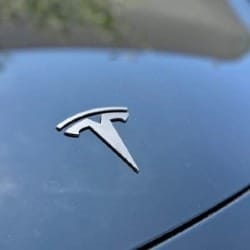Money, Information, and Politics

Life in the 21st century is reader supported, please subscribe
Recently, I was correctly admonished by an OB (Original Blogger) “to not become a blogger.” In lame defense, I claimed as a former news junkie, my mind has once again been immersed in the happenings of these United States. Being back in the country for six months, I was having a hard time ignoring the show. She corrected me saying I only had been back four months. I could only reply, “Fuck.”
I do attempt to use events to exemplify various points and thinking I'm trying to make. We live in, I won’t yet say radical times, but extreme times, where established methods and processes are pushed passed once accepted limits with zero alternatives offered. Much of this is nothing really new, simply logical extensions of long established trends. Take for example, the over reach of the executive.
Many want to argue Trump’s actions are unprecedented, but an argument, a good one, can be made this trend goes back at least to Mr. Lincoln and his war. A century and half ago, in the Abrahamic tradition, the executive consecrated the nation state's formation with the blood of six or seven hundred thousand sons. No angel stayed Mr. Lincoln’s hand, instead he was given the ferocious hand of Ulysses Grant.
What’s interesting about the president’s current actions is the whole money question, old as the republic itself, has so easily shifted. The WSJ writes, the president is “potentially crossing a red line the Supreme Court has suggested protects the central bank from direct political manipulation.” Which is definitely funny, another red line crossing and all.
Two things to understand here; first, the Fed is a political institution, and secondly, the Federal Reserve is a system which for all purposes is the banks. With its establishment over a century ago, the banks were given, basically, exclusive right, to control and manage the money system. Afterwards, all sorts of pointy-headed economists wrote screeds about why this was a good thing and vulgar politics had no business, pun attended, interfering with the banks’ control of the money system. It just wasn't good economics. They provided all sorts of equations to prove it.
Since the creation of the Fed, various ragtag lots, from the remnants of the Populists to now remnants of the New Deal, not many of either around these days, argued there should be more government influence over the Fed. So, what’s interesting is how really without a bat of an eye, both in argument and action, the dreams of generations, in a through the looking glass Trumpian way, happen.
Directly connected to this is our newest technology race to nowhere. For technology, no matter how desperate the need, we've never had a politics. The Journal has an article how our most debauched and farcical Tech Lords launched another suit in his attempt to catch up in the AI "race." It’s pretty clear Elon was caught surprised and with his pants down at the start of the race, funnily enough after decades of shilling his old electric car technology as some sort of intelligence innovation.

The 21st century bus to nowhere carries this symbol,

But again, there’s something to learn here. We are entering a time where America’s oligarchs are beginning to fight each other. With gluttonous ambition, there's never enough for everybody is there? Best, Elon accuses his fellow Tech lords of being “monopolists.” He needs to call his old Paypal colleague Peter Thiel (Max Blumenthal does an important take-down of Palantir here) – monopoly is the whole goal. Even more revealing, the WSJ writes, “Musk says the partnership between the two companies has given the ChatGPT-maker access to ‘billions of user prompts’.” An understanding, leave aside all the hype, AI at its foundation is a political creation establishing control, yes, that’s right, just like the Fed.

